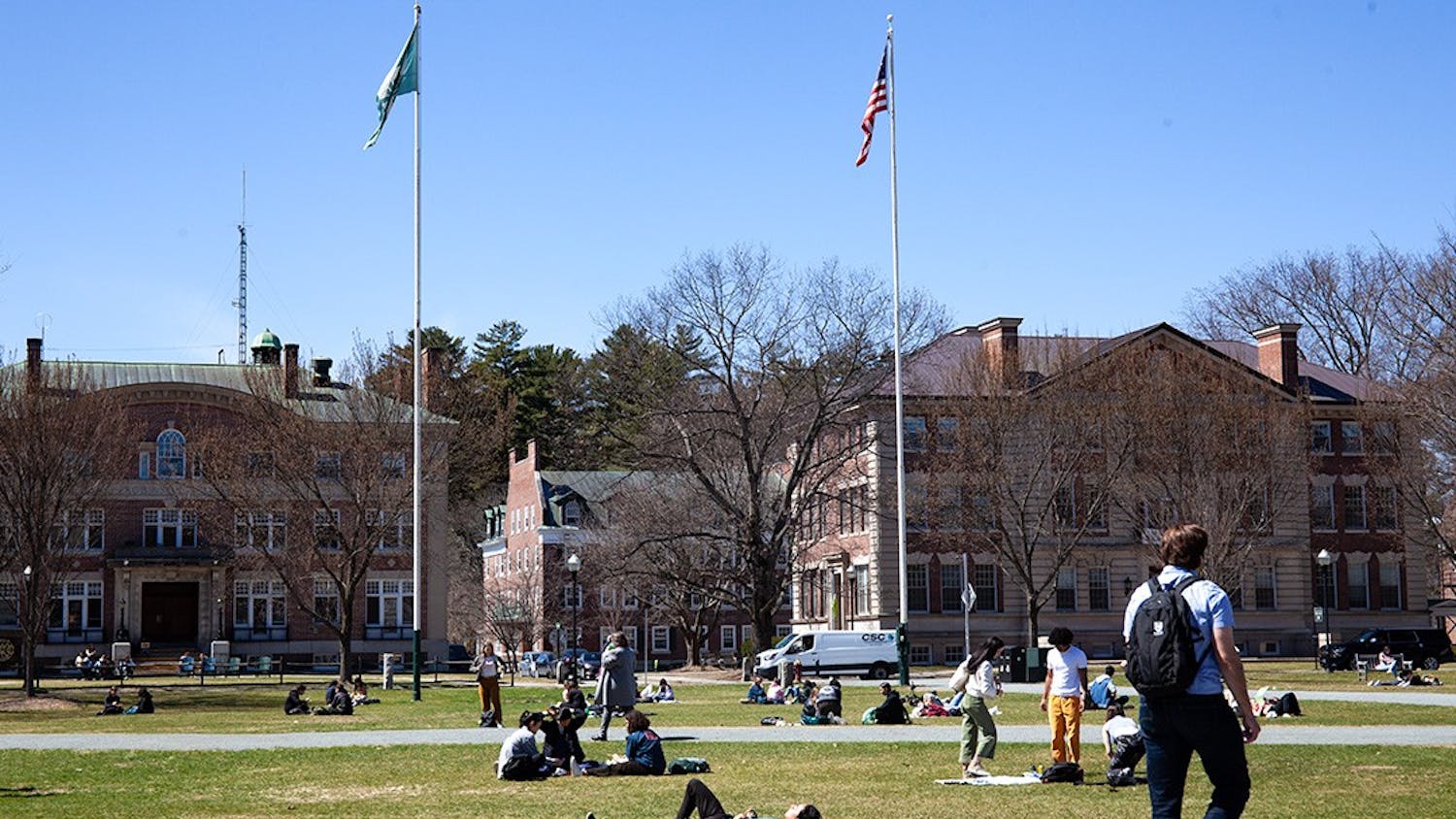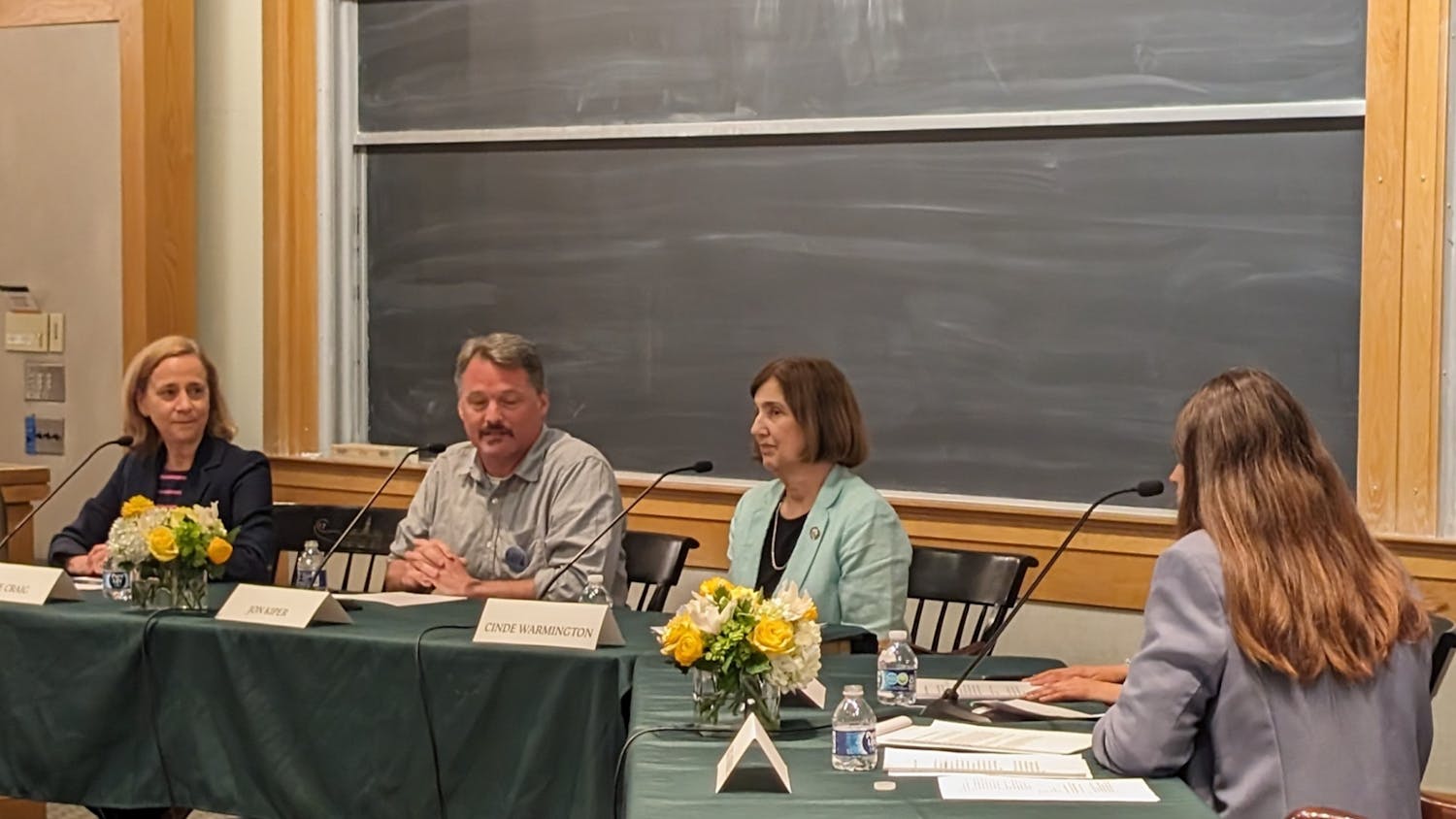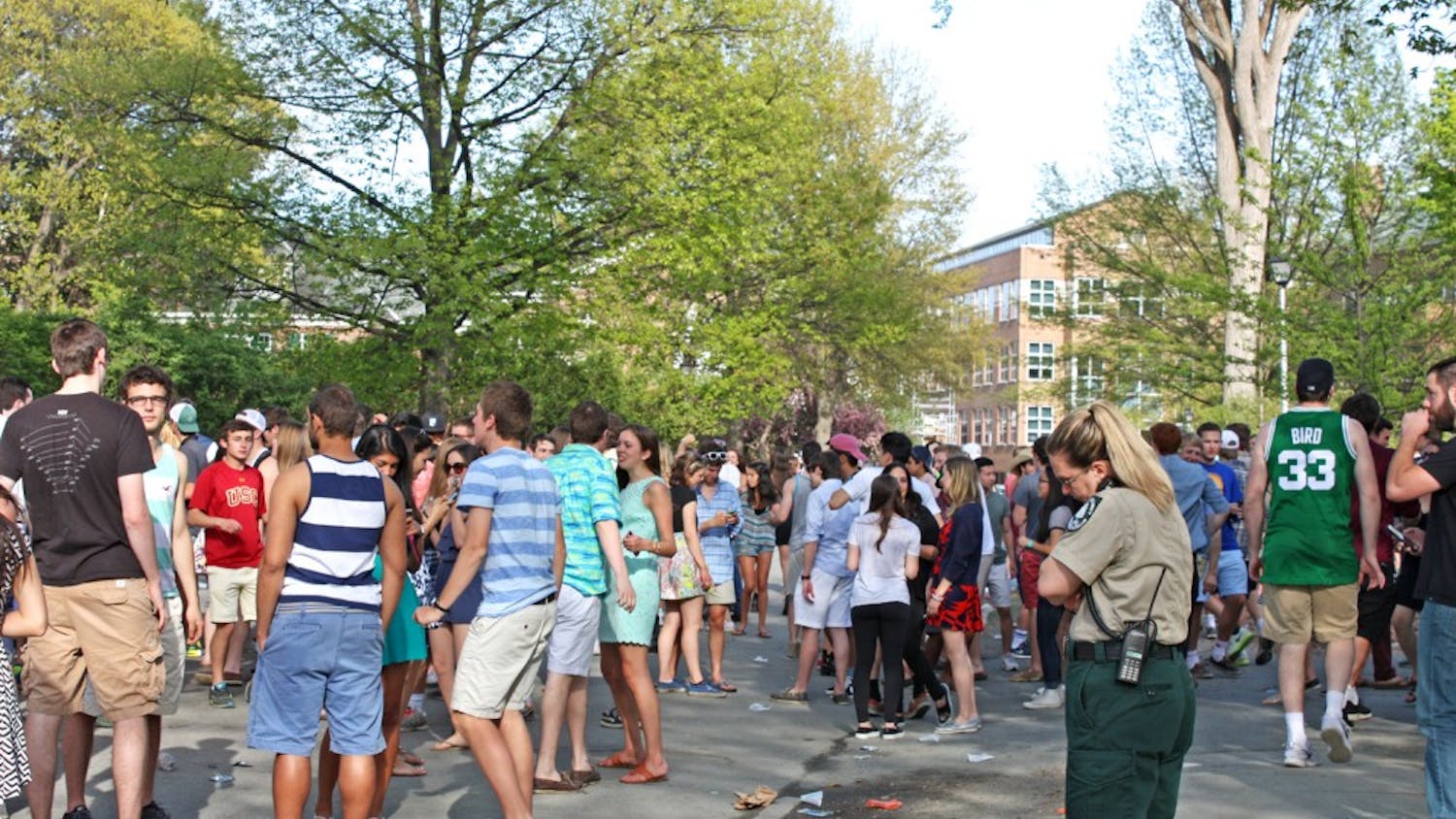Today the Office of Admissions will mail decision letters to what has the potential to be the most diverse class in Dartmouth's 232-year history, according to Dean Karl Furstenberg.
The term "highest in history" was perpetually on the tip of Furstenberg's tongue as he described the number of minorities, women and international students of all applicants admitted this year.
In all, 22.8 percent of applicants received letters of acceptance. 764 students of color make up 34.5 percent of those admitted.
The acceptance rates of both Asian Americans and Native Americans are at record levels, although the number of African American students declined due to a smaller pool of applicants. The number of Latino students admitted exceeds last year and is the second highest in history.
According to the Admissions Office, depending on the yield, this large group of minority students admitted offers the potential of enrolling the most diverse class ever to matriculate at the College.
Furstenberg explained the increase by pointing toward the high caliber of minority applicants this year.
"This year is larger than any other year because the pool was strong," he stated.
And nearly 30 years after the advent of coeducation, the 1,123 women admitted this year make up the largest absolute number of women accepted to a single Dartmouth class, although only approximately 50 more women were accepted this year than last.
This record number may be a result of the fact that, according to Furstenberg, the quantitative decline in applications from last year to this year represents a decrease in the number of male applicants.
The 158 international students admitted also make up the highest such number ever.
Dartmouth's standards of academic achievement remain high this year; nearly one third of accepted applicants were the valedictorians of their high school classes, and 90 percent of accepted applicants were in the top 10 percent.
Average SAT scores are similar to last year's. Math scores are identical at 721 and verbal scores declined slightly to 713.
As a result of the extraordinary academic strength of Dartmouth applicant pools, Furstenberg explained, the Admissions Office often turns to other selection criteria to make the final admissions decisions.
"We're really at the point where there are so many qualified students, that it doesn't matter if their SAT score is above 700 or whether they're in the top 10 percent," he said.
Geographical region, however, is not one of these non-academic criteria.
Despite recruitment efforts targeting a variety of geographical areas, the number of accepted applicants from the Northeast has remained disproportionately high
Though Furstenberg expressed an interest in diversifying the student body in terms of geographical backgrounds, he did not want to jeopardize admissions standards in the process.
"We're better off admitting the most qualified students," he pointed out, "as opposed to where they're from."
Although hometown loyalties do not play a large part in the process, in some cases, family ties do.
According to Furstenberg, the 135 legacy students admitted is a greater number than the corresponding numbers in recent years, and the Alumni Office hopes to increase these numbers in the future.
Although the dean assured The Dartmouth that legacies face the same rigorous admissions process as non-legacy applicants, he did admit that legacy students are at a slight advantage.
"We tend to respond to the pool by giving the student an extra look," he explained, and added that legacies are favored in borderline cases.
Furstenberg is enthusiastic about the increased diversity and high academic standards of the '05 class.
"I think the group we've just admitted has amazing potential for Dartmouth," he said.



